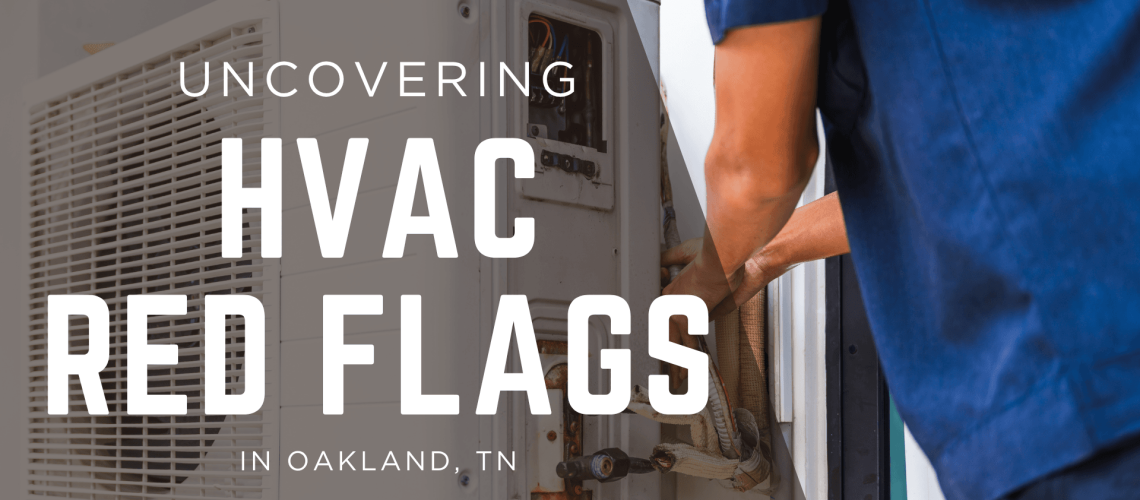When you’re touring a home, it’s easy to tell if the air conditioner is blowing cold — but that’s only part of the story. The HVAC system (heating, ventilation, and air conditioning) is one of the most expensive and vital systems in any home, and it often hides problems that buyers can’t spot on their own.
In Jackson, Tennessee, where summers are hot, humid, and long, a faulty HVAC system can make a home uncomfortable — and costly to repair — within weeks of moving in. During inspections throughout Madison County, I’ve found everything from improperly sized units to dangerous venting issues that weren’t visible to the untrained eye.
Here’s what I look for, and what every homebuyer should know before closing.
Why HVAC Systems Deserve Special Attention
Your HVAC system controls more than temperature — it also affects indoor air quality, humidity, and energy efficiency. A neglected or improperly installed system can:
- Waste energy and drive up utility bills
- Cause uneven temperatures and poor airflow
- Circulate dust, allergens, or mold spores
- Fail prematurely, costing thousands in replacement
Because HVAC systems are a blend of electrical, mechanical, and air movement components, small issues in one area can quickly affect the others.
Common HVAC Red Flags Found in Jackson Homes
1. Clogged or Dirty Air Filters
It may seem minor, but dirty filters restrict airflow, strain the blower motor, and reduce system lifespan. During inspections, I often find filters that haven’t been changed in months — a simple oversight that can lead to costly breakdowns.
2. Improperly Sized Units
An HVAC system that’s too large or too small for the home will never run efficiently. Oversized units cycle on and off too quickly, wearing out components and leaving humidity behind. Undersized systems run constantly and struggle to keep up.
When inspecting, I compare the system’s capacity to the home’s square footage and insulation to see if it’s appropriately matched.
3. Leaking or Uninsulated Ductwork
In Jackson homes with crawlspaces or attics, I frequently find duct leaks that waste 20–30% of conditioned air. Poorly sealed or uninsulated ducts make certain rooms too hot or too cold and increase energy costs.
Duct leakage is one of the most common efficiency issues I document during home inspections.
4. Dirty or Blocked Evaporator and Condenser Coils
Outdoor condenser units often get clogged with leaves, dirt, or debris. Indoors, evaporator coils may accumulate dust or biological growth from moisture and condensation. Both conditions reduce cooling efficiency and can cause the system to freeze up.
5. Improper Drainage or Clogged Condensate Lines
In Jackson’s humid climate, air conditioners pull a lot of moisture out of the air. If the condensate drain line clogs, that water can overflow into the furnace cabinet or attic, leading to ceiling stains, mold, or even electrical shorts.
6. Aging or Outdated Systems
Most HVAC units last around 10–15 years with proper maintenance. During inspections, I check the data plate to determine age and note whether the system uses older refrigerants such as R-22 (which is now banned). Replacing those systems can be costly, so it’s important for buyers to know before purchase.
7. Improper Venting or Combustion Air
Gas furnaces and water heaters require proper venting to exhaust carbon monoxide safely. I’ve seen flue pipes that are disconnected, undersized, or sloped incorrectly — all potential safety hazards.
8. Missing or Inaccessible Service Disconnects
Every HVAC system should have a visible electrical disconnect nearby. Missing disconnects or inaccessible units create safety issues for service technicians and inspectors.
The Bigger Picture — Air Quality and Energy Efficiency
In many Jackson homes, HVAC issues overlap with indoor air quality concerns. Leaky ducts, dirty filters, and high humidity can contribute to musty odors, condensation, or even microbial growth inside the air handler.
A properly maintained system improves comfort, controls humidity, and keeps operating costs low — while protecting your home from moisture damage.
What I Check During a Full HVAC Inspection
When inspecting a home in Jackson or surrounding areas like Humboldt or Medina, I:
- Test system operation in both heating and cooling modes
- Inspect filters, ductwork, and air returns
- Evaluate age, condition, and efficiency ratings
- Check condensation drainage and refrigerant line insulation
- Examine venting and combustion air for gas units
- Note noise, vibration, or airflow irregularities
Each finding is documented with photos and practical recommendations — not just “replace” notes, but real-world guidance on repair options and priorities.
Why Buyers Should Never Skip It
HVAC repairs and replacements are among the most expensive a homeowner can face. A system that appears functional today could be at the end of its service life — or hiding an issue that shows up after the first summer heatwave.
A professional inspection gives you a clear picture of what you’re buying, including expected lifespan, safety concerns, and maintenance needs.
📞 Schedule Your Jackson Home Inspection Today
Serving Jackson, Medina, Humboldt, and communities across Madison County, Upchurch Inspection provides certified home inspections, HVAC evaluations, and specialized testing for mold, radon, water quality, and sewer systems.
📞 Call (901) 350-8885 or visit UpchurchInspection.com to schedule your inspection today.


